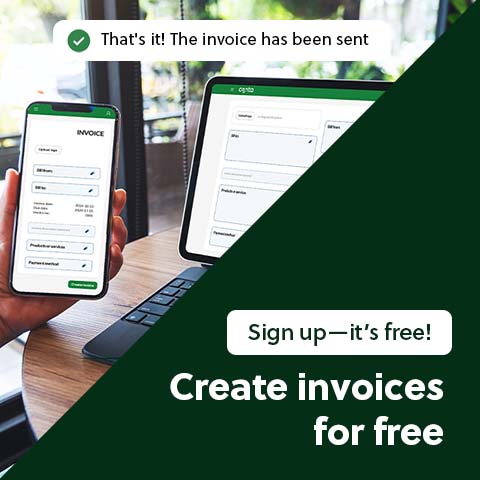Sometimes, what starts out as just a hobby can transform into a full-fledged business. In this guide, we’ll take a look at the key differences between a hobby and a business, and explain what you have to do if your hobby qualifies as a business.
It’s important to understand the differences between a hobby and a business. If you’re making money from a hobby without setting up a business it can actually lead some pretty big consequences. That’s because there are legal and tax obligations you have to adhere to when you run a business.
So: hobby or business? We’ll help you figure out whether you’re just doing it for fun or whether you’ve crossed into running your own business.
What is a hobby?
Merriam Webster defines a hobby as “a pursuit outside one’s regular occupation engaged in especially for relaxation”. Typically, hobbies are not carried out in a professional capacity or for monetary gain.
Examples of hobbies include:
- collecting items
- engaging in creative and artistic pursuits, such as painting or knitting
- participating in sports
- enjoying various forms of amusement, such as reading or going to the theatre
However, if you spend a lot of time on a hobby that also serves as a source of income for you, chances are, the authorities will qualify it as running business.
If, for example, you spend a lot of time painting and you sell your paintings at a profit—meaning it covers the cost of paints, frames, brushes and a studio to paint in, and you’re left with some money at the end—you should register a business so that you can pay taxes and charge VAT/GST as per the rules in your country.

What is a business?
A business is an entity engaged in commercial, industrial, or professional activities. Whether you’re considered to be in business isn’t determined by one single factor, but various factors like
- whether you intend to make a profit—even if you’re not making a profit now
- whether the size or scale of your activity is equal to other businesses in the industry
- whether your activities are planned, organized, and executed in a businesslike manner, for example if you maintain business records, operate under a business name, or have a separate bank account
When does a hobby turn into a business?
To figure out if you have a business or hobby, ask yourself:
- Do you intend to make a profit from what you’re doing?
- Do you do the activity regularly and in a structured and businesslike manner?
- Have you registered a business name or number, or set up business bank account?
If you answered yes to any of these questions, it’s likely that what you’re doing is considered a business by the authorities. If you’re unsure, we recommend speaking to an accountant or lawyer, or to the authorities to determine the best way forward.
An example of a hobby becoming a business
Let’s look at a practical example of a hobby turning into a business.

Anna started off simply loving photography—it was just a hobby. She bought a fancy camera, several different lenses and even invested in lights and backdrops to get really good at photography. She took photos of friends and family. Eventually word got around and she got offered a job as a wedding photographer, afterwards she did Christmas cards for some acquaintances and even some product photography for a local brand. She started earning some income from this, to the point where she cut back on her main job to focus more on her photography.
The tax authorities would now consider her once casual photography hobby a legitimate business. That means Anna would have to register her business, if she hasn’t already, and send out invoices with VAT/GST to get paid for her work.
The good thing about registering a company, is that Anna can get tax deductions for all her expenses. The cost of the equipment she purchases in order to run her business, can be subtracted from her taxable income, meaning she pays less tax.
Are you starting an online business? Here’s 10 mistakes you should avoid.
Pro-tip: Keep receipts to claim tax deductions
If you want to claim tax deductions, you have to be able to document your expenses. That means you have to hang on to all your receipts, invoices and other purchase documents. You should also set up a separate bank account, so that you don’t mix your personal finances with your business finances.
I’m running a business—what now?
If you come to the conclusion that you’re actually running a business, you need to register the business. The simplest business structure is sole trader, also called contractor, freelancer or self-employed. A sole trader is an individual running a business. It is inexpensive to set up and there are generally less compliance and legal requirements. These are the key differences between a sole trader and a limited company.
As a sole trader, it’s essential to organise your finances from the start. This involves maintaining accurate records of your business activities, such as expenses, acquisitions, sales, and salaries. You should also set up a cash flow projection.
Get started with free invoicing software
Invoicing software is a handy tool that makes it easy for you to create invoices and keep track of payments—and of course to see which invoices are overdue, so that you can follow up with clients and get paid.
Conta is a free invoice software designed for sole traders, freelancers, contractors and small businesses. With Conta, it’s incredibly easy to create and send invoices. You can personalize each invoice with your logo and a note—perfect for adding a thank you message, payment instructions, and other details. You can send the invoice directly from Conta or download as a PDF.
Create free invoices now




